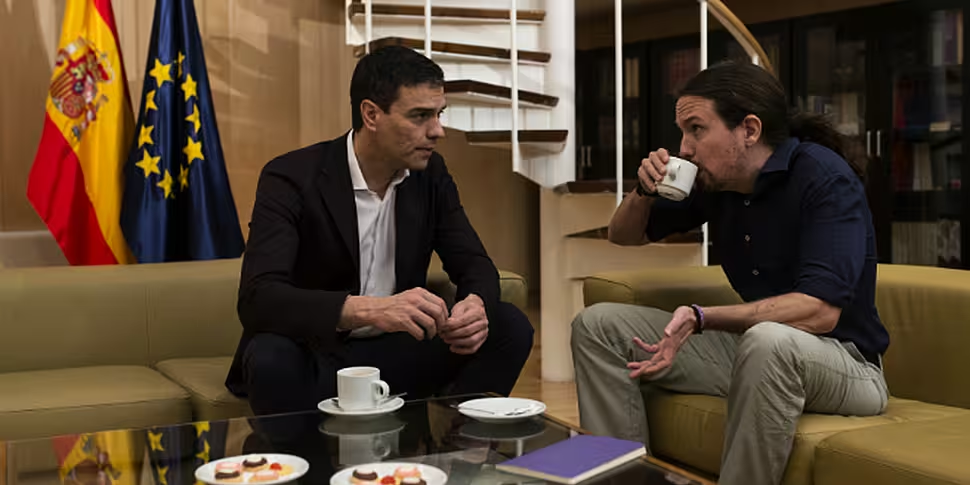As Enda Kenny attempts to cajole Micheál Martin into making a Fianna Fáil-Fine Gael power couple, Ireland continues to sleepwalk along as a country without a government.
A full five weeks have passed since the final two Dáil seats were announced on Thursday March 3rd, and we’re edging closer to that Irish record of 58 days without a government set back in 1992/93.
We are not an anomaly in Europe, however. Within the past decade alone, two of our European Union bedfellows have dealt with prolonged periods with only interims to take care of business. One broke world records after over the course of a ludicrous year-and-a-half of indecision, and the other is dealing with Ireland’s predicament as we speak...
BELGIUM
The kings of the political twilight zone, the home of the EU’s HQ set the world record for the longest period without a government. And it wasn’t all that long ago.
Following the collapse of Yves Leterme's government in April 2010, the historical acrimony between Flemish and Walloon parties reached boiling point and meant a coalition was an incredible 589 days in the making.
After 250 days, students stripped in protest. Then far-right French leader Marine Le Pen suggested the Walloons could join France.
Shares in nationalised bank Dexia fell to €0.3, as the uncertainty did nothing to foster global confidence in a country with a debt-GDP ratio of 96%.
While the day-to-day affairs of the country were attended to by the former PM and government, financial and economic decisions on the national debt, foreign policy and defence were not taken and a budget could not be laid out.
Finally, it was an S&P downgrade that got things and the overwhelming necessity for a budget that forged a grudging coalition. In December 2011, Prime Minister Elio Di Rupo, a Walloon socialist, was sworn in.
Less than three years later, the Belgians were back in the polls and another dose of uncertainty was coming. The country breathed a sigh of relief in October 2014 when current liberal PM Charles Michel took charge of a four-way coalition. It had only taken five months, a blink of the eye compared to what had come before.

SPAIN
The Iberian nation closed 2015 with an inconclusive pre-Christmas election.
While the conservative People’s Party, previously in power for four years, secured the most seats, it could not manage a majority. The second placed Socialists lost a lot of ground to a new leftist party Podemos, while a new liberal party, Ciudandanos, also entered the fray.
Mirroring Ireland’s situation to an extent, despite leaving a recession behind there has been mass hostility towards the previous government for their austerity measures.
The Catalonia question has also brought problems, with the region’s assembly coming under the control of a separatist coalition.
By February, the situation was clearly hurting their ability to do business, particularly across the Atlantic. With Spain’s hands tied, France and Italy seized the initiative in Latin America.
Italian Prime Minister Matteo Renzi became the first European to visit Argentina’s new President Mauricio Macri in Buenos Aires, while French President François Hollande paid official visits to Peru and Uruguay.
With Cuba opening up, France have been strengthening their ties with Hollande in Havana and Raúl Castro coming to Paris. Italy has followed suit, but acting Spanish prime minister Mariano Rajoy has never planned a trip to the Spanish-speaking Caribbean island to discuss economic relations.
By mid-March, three of King Felipe’s state visits abroad had been shelved.
Back home, Rajoy had refused the King’s initial invitation to form a government, while Pedro Sánchez of the Socialists’ month-long attempts to form a coalition came to nothing after an MP vote.
The King then refused to talk to any of the parties. Taking another vow of silence was the interim government, who started refusing to appear before parliament.
As ever with these situations, warnings have been issued of the overall economic consequences of a lack of permanent, stable leadership.
Not according to MarketWatch, however, who said the economy was feeling no ill effects.
They noted that overall output was growing by 3.5% annually, consumer spending was up, unemployment was down and house prices were enjoying an increase.
The same article said that Belgium had not suffered any major financial damage due to their recent history of political instability.
On Wednesday, the Congress of Deputies – the lower house of parliament – decided to take the interim government to the Constitution Court to force it to appear before parliament.
As things stand, the time for government-making runs out at the end of April. After that, another general election will be on the way on June 26th.
Whether or not Ireland will be joining them remains to be seen.









